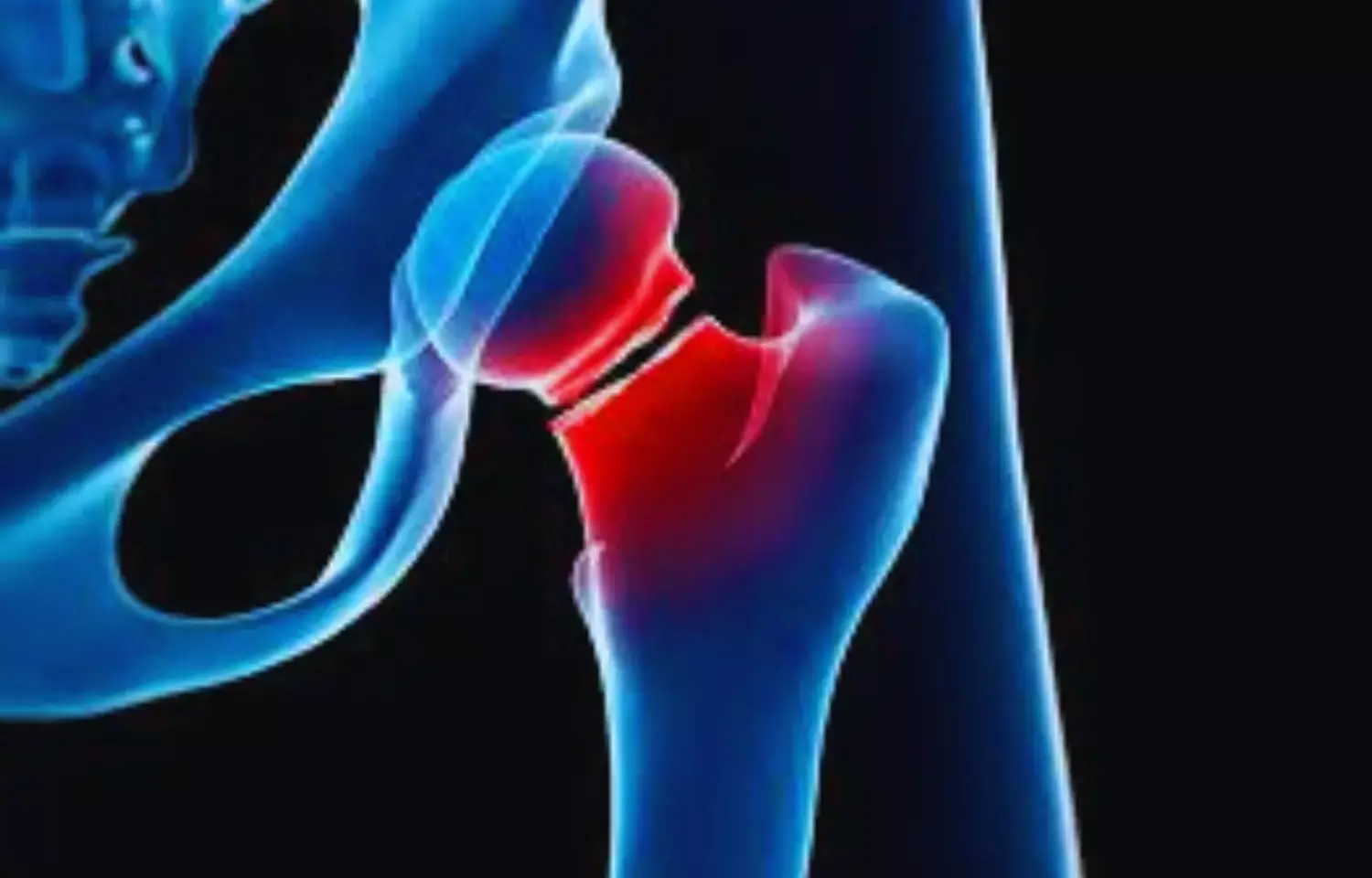- Home
- Medical news & Guidelines
- Anesthesiology
- Cardiology and CTVS
- Critical Care
- Dentistry
- Dermatology
- Diabetes and Endocrinology
- ENT
- Gastroenterology
- Medicine
- Nephrology
- Neurology
- Obstretics-Gynaecology
- Oncology
- Ophthalmology
- Orthopaedics
- Pediatrics-Neonatology
- Psychiatry
- Pulmonology
- Radiology
- Surgery
- Urology
- Laboratory Medicine
- Diet
- Nursing
- Paramedical
- Physiotherapy
- Health news
- Fact Check
- Bone Health Fact Check
- Brain Health Fact Check
- Cancer Related Fact Check
- Child Care Fact Check
- Dental and oral health fact check
- Diabetes and metabolic health fact check
- Diet and Nutrition Fact Check
- Eye and ENT Care Fact Check
- Fitness fact check
- Gut health fact check
- Heart health fact check
- Kidney health fact check
- Medical education fact check
- Men's health fact check
- Respiratory fact check
- Skin and hair care fact check
- Vaccine and Immunization fact check
- Women's health fact check
- AYUSH
- State News
- Andaman and Nicobar Islands
- Andhra Pradesh
- Arunachal Pradesh
- Assam
- Bihar
- Chandigarh
- Chattisgarh
- Dadra and Nagar Haveli
- Daman and Diu
- Delhi
- Goa
- Gujarat
- Haryana
- Himachal Pradesh
- Jammu & Kashmir
- Jharkhand
- Karnataka
- Kerala
- Ladakh
- Lakshadweep
- Madhya Pradesh
- Maharashtra
- Manipur
- Meghalaya
- Mizoram
- Nagaland
- Odisha
- Puducherry
- Punjab
- Rajasthan
- Sikkim
- Tamil Nadu
- Telangana
- Tripura
- Uttar Pradesh
- Uttrakhand
- West Bengal
- Medical Education
- Industry
Opioid use before hip fracture surgery may be reduced with early ultrasound-guided femoral nerve block

When compared to usual treatment, patients who were randomly assigned to undergo an early ultrasound-guided femoral nerve block (FNB) for hip fractures and severe pain showed less opioid use before to surgery without experiencing a delay in reaching optimum pain management.
Elderly individuals often suffer from excruciating injuries like hip fractures. Forty percent of patients may obtain subpar pain treatment, and 50 to 70 percent of patients have severe pain. Even while the first line of treatment for pain is often opioids, the frequency of negative consequences linked to opioid usage emphasises the need to investigate other options. A recently published randomised study attempts to evaluate the effect on preoperative painkiller intake of early ultrasound-guided FNB, started at diagnosis. Patients with a hip fracture confirmed by radiography and a pain score of ≥ 7 (on a verbal numerical scale from 0 to 10 points) at emergency department triage were identified and randomised 1:1 to receive ultrasound-guided FNB (n = 15) or standard care (n = 15) between September and December 2022. Ultrasound-guided forced ambulation with morphine decreased preoperative opioid consumption by 60% compared to the conventional group, resulting in a reduction of 9 morphine milligramme intravenous equivalents (MME) (95% CI: 3–14, P < 0.001). The average time for ultrasound-guided FNB was 13.6 ± 6.5 minutes, and the amount of time it took for each group to have pain alleviation was not statistically different. The ultrasound-guided FNB group had a 56% decrease in opiate intake throughout the hospital stay, with a difference of 11.5 MME (95% CI: 0.5–22). In the ultrasound-guided FNB group, opioid adverse events were 40% lower (95% CI: 5.1–74.9) and there were no observed FNB-related adverse effects. Overall, these results support the use of early single ultrasound-guided FNB by qualified emergency physicians as an alternative to intravenous opioids in older patients with hip fractures, as it reduces preoperative opioid consumption without delaying the time to pain relief.
Reference –
Gerlier, Camillea; Mijahed, Ramia; Fels, Audreyb; Bekka, Samirc; Courseau, Romaind; Singh, Anne-Lysea; Ganansia, Oliviera; Chatellier, Gillese. Effect of early ultrasound-guided femoral nerve block on preoperative opioid consumption in emergency patients with hip fracture: a randomized trial. European Journal of Emergency Medicine 31(1):p 18-28, February 2024. | DOI: 10.1097/MEJ.0000000000001075.
MBBS, MD (Anaesthesiology), FNB (Cardiac Anaesthesiology)
Dr Monish Raut is a practicing Cardiac Anesthesiologist. He completed his MBBS at Government Medical College, Nagpur, and pursued his MD in Anesthesiology at BJ Medical College, Pune. Further specializing in Cardiac Anesthesiology, Dr Raut earned his FNB in Cardiac Anesthesiology from Sir Ganga Ram Hospital, Delhi.
Dr Kamal Kant Kohli-MBBS, DTCD- a chest specialist with more than 30 years of practice and a flair for writing clinical articles, Dr Kamal Kant Kohli joined Medical Dialogues as a Chief Editor of Medical News. Besides writing articles, as an editor, he proofreads and verifies all the medical content published on Medical Dialogues including those coming from journals, studies,medical conferences,guidelines etc. Email: drkohli@medicaldialogues.in. Contact no. 011-43720751


